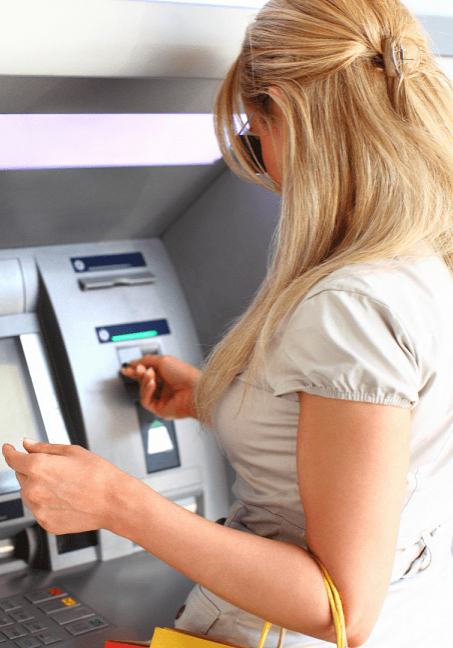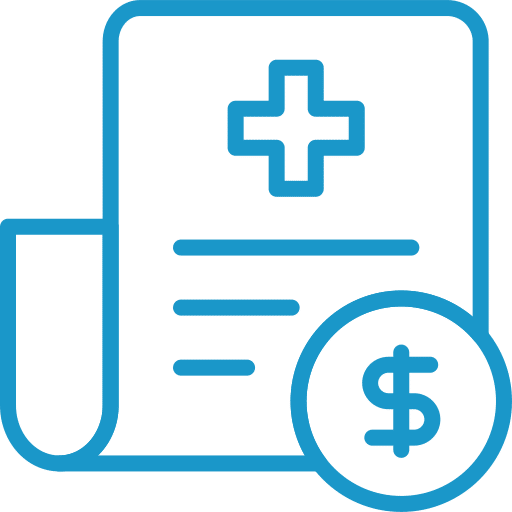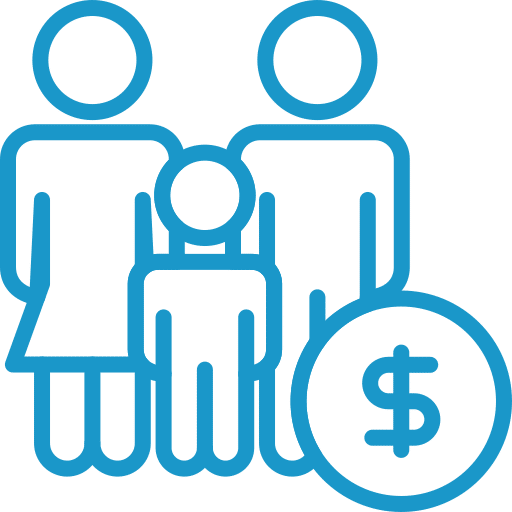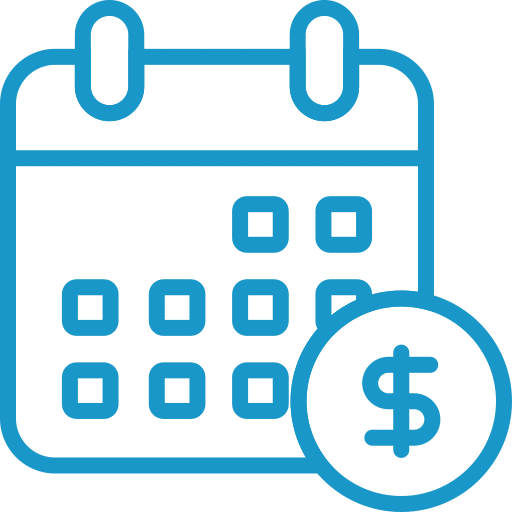Emergency Personal Loans
Get pre-qualified for a personal loan in just minutes with no impact on your credit score.







Best Emergency Personal Loans in February, 2026
Life often happens when you least expect. You sail along happily then your car breaks down, there's a sudden medical problem, or funeral costs to meet. While needing to replace your break pads is certainly not as bad as losing a loved one, that knowledge may help you feel better, but it doesn’t help you pay the bill.
Often, all you need is a little money to tide you over for a few weeks or months. In many cases, taking out an emergency personal loan is just the injection of cash you need.
Applying for an emergency personal loan is fast and easy:
Compare personal loan rates
Compare personal loan rates in February, 2026
Need help finding the right loan?
No worries, we've got you covered! Compare personalized loan options in just minutes.
What is an emergency personal loan?
An emergency loan is a loan that helps you meet the expenses incurred when dealing with a sudden emergency. They are often short-term loans that must be paid off over just a few months, and come with high fees. That said, you can use any type of personal loan to cover emergency expenses, so if your credit is good, you can attain a normal long-term personal loan to cover emergency situations.
How does an emergency loan work?
An emergency loan isn’t really any different to a normal loan, though they may be marketed that way. You apply for a loan, either over the long term or short term, and pay it back each month. Some short term loans have different terms that require it to be paid back more frequently, but either way, the repayment amount will be fixed over the term of the loan.
Are there different types of emergency loans?
An emergency loan is a catch-all term for a loan that you can get quickly, usually at some expense. Among them are:
- Personal loans: A personal loan is an (often) unsecured loan that is paid back with a fixed monthly amount for the term of the loan. Because it is unsecured, your home and property are not at risk if you encounter problems with the repayments, but the interest rate will likely be higher than for a secured loan because of the risk to the lender.
- Home equity loans: If you have a home that has risen in value since you bought it or have paid off a substantial part of your mortgage then a home equity loan may be a good option. Most lenders will offer sums up to 85% of the value of the equity you own and because their money is safe interest rates are quite low. These are a good option if your home needs repairs, or you need a large sum of money (for example, to pay a medical bill).
- Payday loans: If at all possible payday loans should be avoided. The lenders are often prepared to lend money on a very short-term basis to almost anyone, whatever their credit score and circumstances. However, the interest rates they charge are shocking and you can quickly find yourself in a lot of financial difficulty very quickly.
- Credit card cash advances: Most credit cards allow you to take a cash advance as well as the more normal paying for goods and services. While this can be a useful facility, understand that most card providers charge fees for cash advances and that the interest begins immediately.
- Title loans: Title loans are pretty much secured payday loans with your property, usually your car, acting as collateral. While such loans may be less expensive than payday loans the downside is that if you default you will lose your car. Another loan that should only be used if no other is available.
What type of emergencies can I use a personal loan for?
The only thing that links emergencies is that they are unexpected and unplanned. Some of the commonest causes are:
- Medical bills
- Car repairs
- Funeral expenses
- Home repairs
- Mortgage or rent payments
- Utilities
- Short-term childcare
What is the average APR on an emergency loan?
APRs on emergency loans vary widely depending on the loan company, the type and amount of the loan, and your credit score. With a good score you might expect an interest of around 6% and upward but APRs of 30-35% are common.
Emergency Loan Calculator
Total Payment
-
Total Interest
-
Monthly Payment
-
Ready to apply for a personal loan?
Compare rates from top lenders with no impact on your credit, ever.
Quick links

Ready to apply for an emergency personal loan? Get started today.
Compare personal loan rates
How Pasha Funding Works

Emergency loan alternative options
There are other solutions you may want to try to help you out of the financial shortfall caused by an emergency:
- A home equity loan takes advantage of the equity you have built up from homeownership. Provided your house has risen in value or you have paid back a significant part of your mortgage then lenders may be prepared to lend you up to 85% of that equity. Because the property is the collateral and secures the money, interest rates tend to be relatively low.
- HELOC (home equity line of credit) allows you to use the value of your home to set up a line of credit. You normally have a draw period of around 10 years to borrow as little or as much of an agreed limit as you need while only paying the interest. After that, you have anything up to 20 years to pay off the debt.
- Using a credit card is a possibility if the amount needed is within your limit and it is certainly the easiest and fastest. However, the APR on most credit cards tends to be quite high so this option is more a stopgap solution than a long-term answer. If your credit is good, try to find a card with a 0% APR period.
- Ask friends and family if they may be willing to offer help. If you go this route make sure the terms of repayment are accurately set out. Any problems in this area will inevitably lead to a souring of relationships however close you are to begin with.
- Medical repayment plans are available for paying bills related to health treatment along with medical credit cards. They both allow you to break up the bill into a series of manageable monthly payments.
- Non-profit help: There are schemes available from non-profit organizations and government bodies that may be able to help if you have a low income and are suffering hardship. You may find that being part of the Medicaid health insurance program is part of the qualification required.
How long does it take to obtain an emergency loan?
If you have an emergency then you will probably need the cash in a hurry. A dedicated emergency loan will be set up with this in mind and you will likely get the money you need within 48 hours. However, often the less expensive, lower interest options have a more drawn-out procedure. Any loan that involves the value of your home may take an extended period before seeing the cash in your account.
Will an emergency loan have an impact on my credit?
Yes – they’ll all require a search of your credit score, and your ability to repay (or not) will also go on your credit history.
How do I choose the best emergency loan for me?
The problem with choosing an emergency loan is that when an emergency happens you are stressed, worried, and vulnerable. The temptation is to jump at the first thing that offers some sort of financial security and worry about the details of paying it back later.
While it is tempting to do almost anything to get hold of the cash you have to stay calm and review the alternatives. It is not always easy to remain rational but you will regret it later if you end up making a bad decision.
Where to get an emergency loan
There are a lot of traditional and online loan providers you can approach for an emergency loan. Try not to panic and spend enough time weighing up the pros and cons before applying.
Often you will have the chance for prequalifying for a loan which doesn’t require a hard credit check and so doesn’t impact your credit. Although it doesn’t guarantee your application’s success it does give a good guide.
Look through the loans in our comparison tables carefully and find the right one for you – don’t rush this process.
Apply for an emergency personal loan
Once you have compared costs, the monthly payments required, and the funding speed you will be in a position to choose the loan that’s best for you. Make sure you know your income after tax, your monthly outgoings, and the total of the current debt you have before you start your application. The good news is by comparing your rates and loans carefully here, you’ll be in a strong position to get funded ASAP.
Personal Loans for Every Occasion
Find Your Best Rate
Compare Best Personal Loans
Personal Loan Payoff Calculator
Personal Loan Lender Reviews
Personal Loans By Credit
Personal Loans for Fair Credit
Personal Loans for Good Credit
Personal Loans for Excellent Credit
Personal Loan Types
Auto Repair Loans
Credit Card Consolidation Loans
Fast Personal Loans
Home Improvement Loans
Horse Barn Financing
Wedding Loans
Family Planning Loans
Funeral Financing
Land Purchase Financing
Manufactured Home Financing
Medical Loans
Cosmetic & Plastic Surgery Financing
Owner Builder Construction Loans
Personal Loans for House Down Payment
Personal Loans for Self Employed
Personal Loans for Furniture Expenses
Student Loans
Debt Consolidation Loans
Vacation & Travel Loans
Emergency Personal Loans
Personal Loans with Co-signers
Home Improvement Financing
Appliance Financing
Bathroom Remodel Financing
Basement Remodel Financing
Boat Dock Loans
Deck Financing
Driveway Paving Financing
Fence Financing
Flooring Financing
Furnace Financing
Garage Financing
Home Addition Financing
Hot Tub Financing
HVAC Financing
Home Insulation Financing
Interior & Exterior Painting Financing
Kitchen Remodel Financing
Kitchen Cabinet Financing
Pole Barn Financing
Roof Financing
Solar Panel Financing
Swimming Pool Financing
Sunroom Addition Loans
Window Replacement Financing
Loan rate & terms disclosure: Prequalified rates are based on the information you provide and a soft credit inquiry. Receiving prequalified rates does not guarantee that the Lender will extend you an offer of credit. You are not yet approved for a loan or a specific rate. All credit decisions, including loan approval, if any, are determined by Lenders, in their sole discretion. Rates and terms are subject to change without notice. Rates from Lenders may differ from prequalified rates due to factors which may include, but are not limited to: (i) changes in your personal credit circumstances; (ii) additional information in your hard credit pull and/or additional information you provide (or are unable to provide) to the Lender during the underwriting process; and/or (iii) changes in APRs (e.g., an increase in the rate index between the time of prequalification and the time of application or loan closing. (Or, if the loan option is a variable rate loan, then the interest rate index used to set the APR is subject to increases or decreases at any time). Lenders reserve the right to change or withdraw the prequalified rates at any time.
Requesting prequalified rates on Credible is free and doesn't affect your credit score. However, applying for or closing a loan will involve a hard credit pull that impacts your credit score and closing a loan will result in costs to you.









